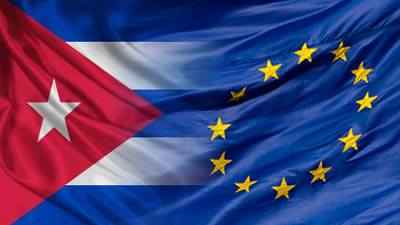
Cuba and the EU: The eye, the speck, and the plank
In its official statement after the talks with the European Union on human rights observance, the Cuban Foreign Ministry has taken a page from the Bible. Specifically, from the book of Matthew.
As reported in Progreso Weekly, representatives from Cuba and the EU met in Brussels on Thursday (June 25) to discuss a normalization of relations, with an emphasis on Cuba’s observance of its people’s human rights.
Fair enough, the MinRex’s statement appears to say between the lines, but do the EU countries have an unblemished record on human rights observance, and should they not also be held to the same standard?
The MinRex’s statement begins by saying that “the Cuban representatives expressed their interest in allowing the dialogue to contribute to an effective, constructive and non-discriminatory treatment of human rights, based on full respect for sovereign equality, reciprocity, independence, free determination and non-interference in the internal affairs of the parties” — a cautionary statement that could be summarized in the words “Don’t tread on me.”
The statement goes on to stress “the need to observe an adequate balance between the issues in the areas of civil and political rights and economic, social and cultural rights, as well as the universal, indivisible and interdependent nature of human rights, wherein all the categories of rights should be attended to in a just and equitable manner, on a footing of equality, granting to all the same weight.”
In the future, the MinRex recommends, Cuba would be interested in broaching, “among other issues, how to deal with racial discrimination; the human rights of groups in a situation of vulnerability, such as the migrants, including the treatment given to them, to religious and ethnic minorities; the protection of human rights in the context of the struggle against terrorism; the right to privacy in the digital era; and the guarantee and exercise of the economic, social and cultural rights that are also issues of interest to the international community.”
“The Cuban delegation,” the statement ends, “ratified its willingness to continue these exchanges also on the basis of the acknowledgment of and respect for the existing conceptual differences, as well as its disposition to broach any topic on the basis of equality, reciprocity and mutual respect.” Note the repetition of the words “equality” and “reciprocity.”
Note also that all these are rights that, at one time or another, have been violated — or are being violated — by countries other than Cuba, many in Europe. Racial, ethnic and/or religious discrimination, for instance, is a recurrent problem in Europe as migrants seek a better life for themselves.
And maintaining a balance between national security and the violation of human and civil rights in the face of terrorist attacks is a conundrum that several European countries are having to deal with right now.
The MinRex’s final comment — about the Cuban delegation’s “disposition to broach any topic on the basis of equality, reciprocity and mutual respect” — is an assurance that, in a confrontation, Cuba can justifiably raise a mirror to the face of its accusers.
In effect, Cuba is telling the European Union, paraphrasing Matthew 7:1-5,
“1. Judge not, that you be not judged. 2. For with what judgment you judge, you will be judged; and with the measure you use, it will be measured back to you. 3. And why do you look at the speck in your brother’s eye, but do not consider the plank in your own eye? 4. Or how can you say to your brother, ‘Let me remove the speck from your eye’; and look, a plank is in your own eye? 5. Hypocrite! First remove the plank from your own eye, and then you will see clearly to remove the speck from your brother’s eye.”
[Illustration at top is a detail from Domenico Fetti’s “The Parable of the Mote and the Beam,” c. 1619.]


